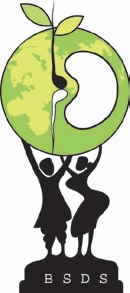Tribal Development Project (TDF)
Bhoomi Sustainable Development Society (BSDS) is actively implementing the Tribal Development Project (TDF) in Kadur and Tarikere taluks within the Antaraghatte cluster of Chikmagalur District. Supported by NABARD, this initiative aims to uplift tribal communities and marginalized families by addressing socio-economic challenges and promoting sustainable livelihoods.
Key Objectives and Activities:
Empowerment of Tribal Families: The primary objective of the TDF is to improve the socio-economic status of tribal families and other marginalized groups. BSDS facilitates various interventions to enhance their livelihood opportunities and overall well-being.
Agro-horti-forestry System (WADI): The project supports the adoption of WADI, a sustainable agro-forestry system, wherein each family receives one acre of land for cultivation. Through WADI, tribal families engage in integrated farming practices that combine agriculture, horticulture, and forestry, thereby enhancing their income and food security.
Soil and Water Conservation: BSDS emphasizes soil and water conservation measures to enhance agricultural productivity and environmental sustainability. Techniques such as contour bunding, check dams, and watershed management are implemented to mitigate soil erosion and ensure efficient water utilization.
Community Health and Hygiene: The TDF prioritizes community health and hygiene through awareness campaigns and healthcare initiatives. BSDS organizes health camps, including gynecological, eye, and dental camps, to provide essential medical services to tribal women, children, and other community members.
Promotion of Sustainable Agriculture Practices: BSDS promotes sustainable agriculture practices among tribal communities to enhance crop productivity while minimizing environmental impact. Techniques such as organic farming, natural pest management, and crop diversification are encouraged to ensure long-term agricultural sustainability.
Medicinal Plant Cultivation: The project promotes the cultivation of medicinal plants to support primary healthcare needs within tribal communities. BSDS establishes kitchen herbal gardens and nutrition gardens to promote the cultivation and use of medicinal plants for preventive and curative healthcare purposes.
Vector Control Measures: BSDS implements measures to control vector-borne diseases by promoting the construction of soak pits in villages. These soak pits help prevent the breeding of harmful insects such as mosquitoes and houseflies, thereby reducing the incidence of diseases and promoting community health.
The Tribal Development Project (TDF) underscores BSDS’s commitment to empowering marginalized communities and promoting sustainable development practices. By addressing socio-economic challenges, enhancing livelihood opportunities, and improving health outcomes, BSDS strives to create lasting positive impact and foster inclusive growth among tribal populations.
